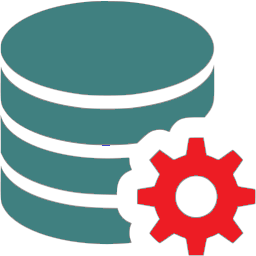Marrying Data Analytics with ERP

Over the past 3 decades or so, Enterprise Resource Planning (ERP) systems have become the priority means of managing & controlling organization’s operations. The top drivers for this are that ERP systems enable individual functions to be more efficient and effective by providing process organization and optimization. Plus it helps teams and departments to work together effectively by centralizing and sharing data to allow processes to transition smoothly across boundaries. To leverage the power of data stored & to maximize the performance benefits from the ERP system, Analytics is increasingly being used. Adding analytics on top of ERP requires a considerable effort, but could provide multi-faceted benefits by allowing more to be made of the data collected. In this article we will showcase role and benefits of marrying data analytics with ERP.
Combining Data Analytics and ERP
With an ERP system designed correctly to have data analytics provided, the two areas complement one another and provide organizations with control, as well as the in-depth insights needed to be flexible.
The downside to incorporating data analytics in ERP is it can become detrimental when there’s a lack of alignment within teams.
If data analytics is adopted by only a select set of experts in a team while another set will just use vanilla ERP, a divergence in best practice can be created, which can chip away at the effectiveness ERP is designed to provide.
For data analytics to work, teams need to focus on answering the right business questions and, if insight leads to evidence that operations need to be changed, this needs to be incorporated into the operational flow established within ERP. This way, changes are not breaking processes and are incrementally improving the effectiveness of the entire organization.
Another issue is that some organizations just incorporate analytics on a system level, but not into the associated operational and management processes. This gives the impression that the job is done, but Analytics can remain largely unused, which increases technology spending without the associated benefits.
Benefits of Leveraging Data Analytics in ERP Systems
The good news is that data analytics done right in an ERP system can lead to several advantages that can add genuine value to organizations. Here are some benefits to consider:
Benefit #1: Data Analytics in ERP can uncover a goldmine
Advancements in ERP technology have opened up new ways of collecting essential data in companies, but according to a study by Forrester, about 60-73 of data is not used in organizations.
A modern ERP solution generates a huge amount of useful operational data that can be used to improve operations, predict trends, and give new insight into the wider market companies operate in, but much of this data is behind a veil. By adding Analytics, this data can be immediately uncloaked, and the value exposed.
Due to the high quality and breadth of ERP data, exposing this set to Analytics is probably the single largest step most organizations can make in increasing the proportion of data they use in the analysis.
Benefit #2: Adding Analytics to an ERP System improves responsiveness
Many organizations are investing serious resources to acquire real-time analytics. This has dramatically increased customer retention, acquisition, and overall bottom line.
If organizational learning has been made as a result of Analytics, then these insights can be used in real-time to improve business decisions.
With such capability, a real-time picture of employee productivity, and issues can be established. Immediate advice on responses to issues can be provided allowing staff and managers to make decisions quickly and effectively and adapt quickly to changing circumstances.
Benefit #3: Engage and Delight Consumers
Using an ERP system with Analytics, you can better view your customer journey from beginning to end. This isn’t possible with a standard customer relationship management (CRM) platform alone, which does not cover all stages.
A comprehensive ERP with data integration can discover areas generally hidden from view and identify these blind spots. Doing so allows you to turn the everyday customer experience into more personalized experiences, such as in the: Education, Delivery coordination, Improvement of customer-facing workflows, Exchanges and returns, Issue resolutions, Recommendations, Anticipating needs.
Benefit #4: You Get to Reallocate Resources
ERP data can provide some unbeatable insights into the operational effectiveness, issues, and demand. If used correctly, this data can allow resourcing to be far more effective than at most organizations by ensuring the right resources are deployed at the right place at the right time.
In addition, all resource requests can be analyzed against demand and operational performance, allowing answers to questions like:
1. How many full time resources are needed?
2. Are we utilizing our current human resources effectively?
3. What is the current productivity and utilization? (individual, department wise)
These questions apply to almost any resource in an organization. With ERP analytics, you can cut down on expenses within a company and make the most of available resources.
Benefit #5: Enhancing Workplace Morale
Many business leaders know that workplace morale and culture are inherently connected to the organization’s success. When morale rises, people feel they have contributed to that success.
When you have a comprehensive ERP analytics system, you can impact morale directly by providing individuals with a greater stake in the running and health of the organization by providing them with more information to become actively involved.
Benefit #6: Lets Companies Develop a Data-Driven Ethos
ERP systems have a considerable number of users compared to most other IT systems. Therefore, by adding Analytics to ERP and familiarizing the use of data to improve decisions among the users, a considerable stride forward in engendering an ethos of being a data-driven organization can be made.
As users begin to use Analytics to refine operations and identify issues, this activity will spread through the organization, creating further benefits. The most competitive companies in the world are data-driven, and by embedding this approach as deeply as possible, the most benefits can be realized. Incorporating Analytics with ERP is, therefore, a strong step in this and will make developing data strategies across the organization easier.
Benefit #7: It Allows You to Maximize Organizational Productivity
For organizations operating within a market, it is impossible to be competitive without being productive. Productivity is, therefore, a driver of competitiveness, profitability, and long-term organizational viability.
By analyzing and comparing operations over time, it is possible to identify both the potential for increasing productivity and the means of achieving this. Therefore, Analytics has a huge role to play in enhancing productivity across operations, and, given that ERP systems cover a lot of operations in depth, ERP Analytics can be a significant part of this.
Conclusion
Combining data analytics with enterprise resource planning systems can lead to many benefits that will bring organizations to new heights. However, there can be challenges and drawbacks as well.
When used right, an ERP system with built-in data analytics can result in businesses being able to access insights, reallocate resources, improve employee morale, maximize productivity, and delight customers.
By having a deeper understanding of data analytics and ERP, you can start leading your organization to transform its processes moving forward.
Preparo Analytics empowers data driven businesses with business focused technology solutions. The company’s Campus Management System & Analytics (CMSA) offers pefect blend of Data Analytics & ERP systems for the benefits of Schools, Colleges & Universities.
Curious to learn more about how we can help you? Get in touch today
